
Verónica Castro, full name Verónica Judith Sáinz Castro, is a Mexican actress, singer, producer, former model and presenter.

Cristian Sáinz Castro is a Mexican pop singer. He is the son of actors Verónica Castro and Manuel "El Loco" Valdés, and nephew of actors Ramón Valdés and Germán "Tin-Tan" Valdés. Castro has sold over 12 million copies, making him one of the best-selling Latin music artists of all-time.
Patrulla 81 is a regional Mexican band originally from the state of Durango. Group member José Ángel Medina formed the group in 1981. In 2004, the group released Cómo Pude Enamorarme de Ti, a hit in both the United States and Mexico. In December 2007, the band released a new album, A Mi Ley, featuring the single "Te Quiero Mucho." Patrulla 81's Quiéreme Más reached No. 1 on the Billboard Top Latin Albums chart in March 2009. In late 2009, the band released Sin Ti No Vive, which debuted on Billboard's Regional Mexican chart at No. 1.
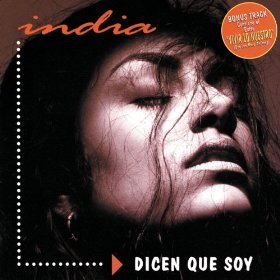
Dicen Que Soy is the third studio album by Puerto Rican recording artist La India released on September 20, 1994, by RMM Records. The album was produced by American musician Sergio George, who chose the songs for India to record with an emphasis on feminism to suit with her voice. The production mixes salsa music with other rhythms such as funk and timba. Five singles were released from the record with "Nunca Voy a Olvidarte" and "Ese Hombre" topping the Billboard Tropical Songs chart.
Leonardo Paniagua is one of the Dominican Republic's most popular bachata musicians. He emerged from obscurity to overnight stardom in the 1970s, when he recorded his first 45rpm record, "Amada, Amante" for Discos Guarachita.
Billboard Hot Latin Hits is a series of compilation albums released by Rhino Records in 1998, featuring hit Latin music recordings from the 1980s and 1990s.
Premio Lo Nuestro 2007 was held on Thursday, February 22, 2007, at the American Airlines Arena in Miami, Florida. It was broadcast live by Univision Network. The nominees were announced on December 12, 2006, during a press conference televised live on the Univision Network morning show Despierta América!.
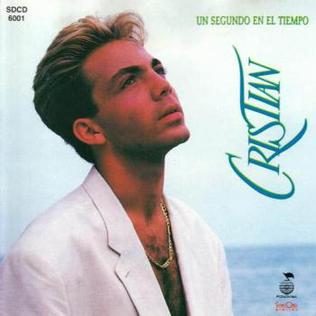
Un Segundo en el Tiempo is the second studio album by Latin Superstar Mexican Cristian Castro, it was released on July 20, 1993. The album itself did not chart on the Billboard, however, the track, Nunca Voy a Olvidarte, reached #1 on Hot Latin Tracks of 1993.
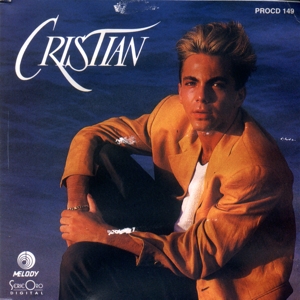
"Nunca Voy a Olvidarte" is a song written by Roberto Belester and first recorded by Mexican grupero band Bronco for their album Salvaje y Tierno (1991). In the song, the protagonist is leaving and vows to never forget the time he spent with his lover. In 1993, Mexican singer-songwriter Cristian Castro covered the song on his album, Un Segundo en el Tiempo. Castro's version peaked at number-one on the Billboard Hot Latin Songs chart in the United States became his first number-one single.
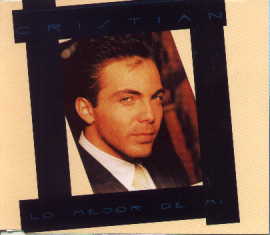
"Lo Mejor de Mí" is a song written and produced by Rudy Pérez and first recorded by Spanish singer Juan Ramon for his second studio album Por Haberte Amado Tanto (1990). In the song, the protagonist tells his lover how he gave his best despite not meeting his lover's expectation. In 1997, Mexican recording artist Cristian Castro covered the song for his fifth studio album Lo Mejor de Mí which Pérez also produced and arranged. Castro's version peaked at number-one on the Billboard Hot Latin Songs and the Billboard Latin Pop Songs charts in the United States. The song received a Billboard Latin Music Awards and a Lo Nuestro nomination for Pop Song of the Year. Pérez earned the American Society of Composers, Authors and Publishers award in the Pop/Ballad field.
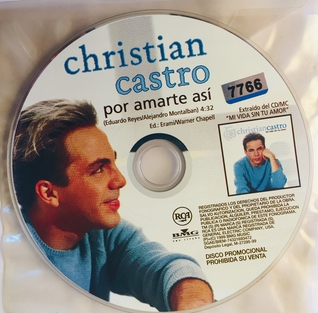
"Por Amarte Así" is a song written by Alejandro Montalbán and Eduardo Reyes and performed by Mexican recording artist Cristian Castro. It was produced by Kike Santander and released in 2000 as the fourth single from his sixth studio album Mi Vida Sin Tu Amor (1999). Lyrically, the song is about a man who promises to keep loving his lover even though she is gone. In the United States, it peaked at number three and two on the Billboard Hot Latin Songs and Latin Pop Songs charts and received a Billboard Latin Music nomination for Pop Track of the Year. "Por Amarte Así" was the fifth best-performing Latin single of 2001 in the United States.
Top 100 México was a record chart which accounted for sixty percent of the albums sold in Mexico. The chart had the support of major record distributors in Mexico and was issued by the Asociación Mexicana de Productores de Fonogramas y Videogramas on a weekly basis from 2005 until July 9, 2020, when the chart was discontinued. The Top 100 México contained over 100 titles sold in the country, with separate charts that include 20 albums for popular music genres, such as norteño, banda and ranchera, Spanish, and English language albums.
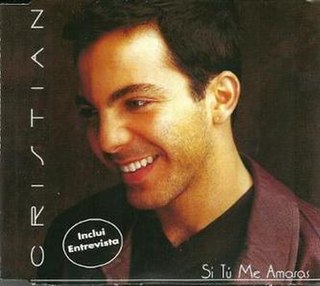
"Si Tú Me Amaras" is a Latin ballad written by Rudy Pérez and first performed by Chilean singer Luis Jara in 1996. A year later, Mexican singer-songwriter Cristian Castro covered the song, with Perez's involvement with the production and arrangement. It was released by BMG U.S. Latin on October 20, 1997, as the third single from his fifth studio album, Lo Mejor de Mí (1997).

"No Hace Falta" is a ballad performed by Mexican singer-songwriter Cristian Castro, taken from his eighth studio album Amar Es (2003). The song was released as the lead single from the album on August 4, 2003, by BMG U.S. Latin. The song was written and produced by Emilio Estefan, Jr., co-wrriten by Nicolás Tovar and Randall M. Barlow.

"No Podrás" is a song written and composed by Alejandro Zepeda and Peter Skrabak, originally recorded by Mexican recording artist Cristian Castro. Lyrically, the song describes the end of a relationship between two lovers where the protagonist tells the lover that she will not forget how much he loved her. The song was released by Fonovisa Records as the lead single from Castro's debut studio album Agua Nueva (1992). It peaked at number three on the US Billboard Hot Latin Songs chart. It was well received by music critics, despite negative reception of its parent album.

"Mañana, Mañana" is a song written by Mexican singer-songwriter Juan Gabriel. Argentine singer Libertad Lamarque performed the song in the Mexican movie La loca de los milagros. Juan Gabriel released his recording of the song, a duet with Estela Nuñez, on his album Ella (1979). The song describes the departure of a lost love who will never return.
The 6th Lo Nuestro Awards ceremony, presented by the Univision, honored the best Latin music of 1993 and 1994 and took place on May 19, 1994, at a live presentation held at the James L. Knight Center in Miami, Florida. The ceremony was broadcast in the United States and Latin America by Univision.
Los Guardianes del Amor were a Mexican band formed in 1992. They were the grupero act with the most nominations for Latin Grammy Award for Best Grupero Album with five, but have never won the award. The band's five original members are Arturo Rodríguez, Óscar Saúl Cervantes, Daniel Poplawsky, Pablo Calderón and Ernesto García.
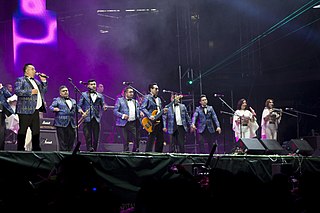
Los Ángeles Azules are a Mexican musical group that plays the cumbia sonidera genre, which is a cumbia subgenre using the accordion and synthesizers. This results in a fusion of the sounds of cumbia from the 1950-1970s with those of 1990s-style electronic music.
The 1st annual Billboard Latin Music Awards which honor the most popular albums, songs, and performers in Latin music took place in Miami.












